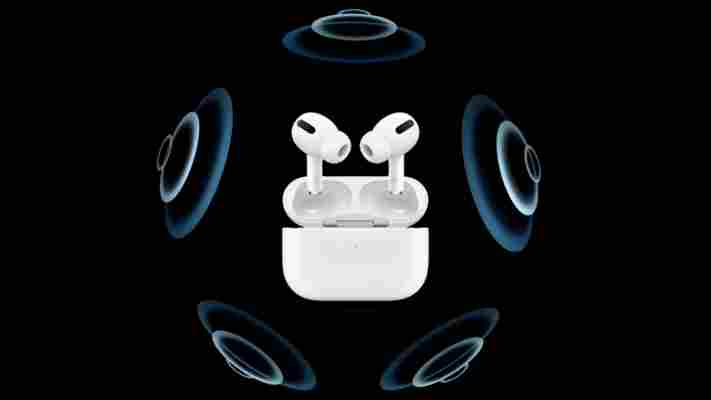
At WWDC 2020, Apple announced it is bringing spatial audio to the AirPods Pro. That means support for technologies like 5.1 and 7.1 surround sound, or even the full 360-degree experience of Dolby Atmos. In other words, your AirPods Pro are about to sound way more interesting.

In a normal listening experience with speakers or live music, sound coming from different directions is modified by your head, ears, and body. These deviations, in combination with room reflections, help your brain tell precisely what direction sound is coming from. Because headphones are positioned so close to your ears, you don’t get the same positional cues –collectively known as the head-related transfer function or HRTF — you would otherwise.
Spatial audio technologies seek to replicate these cues via clever HRTF algorithms for a more immersive experience. It’s the idea behind technologies like Windows Sonic , Dirac’s 3D Audio or THX Spatial Audio .
But one particularly rare addition to the AirPods Pro is head-tracking. With headphones, the music moves around as you move your head, which obviously isn’t how things work in the real world. Like the Audeze Mobius , the AirPods Pro are able to use their built-in accelerometer to keep sound fixed as you move your head, potentially leading to a much more immersive spatial experience. It should be especially useful for movies and gaming(assuming it doesn’t add too much latency).
Unfortunately, it seems the feature is limited to the AirPods Pro, perhaps because of the added processing power required for the technology to work. Spatial Audio aside, Apple also announced it would allow AirPods to rapidly switch between your Apple devices, automatically playing on whatever hardware you’re using without having to manually switch devices.
For more Apple news from WWDC 2020, check out our event page here .